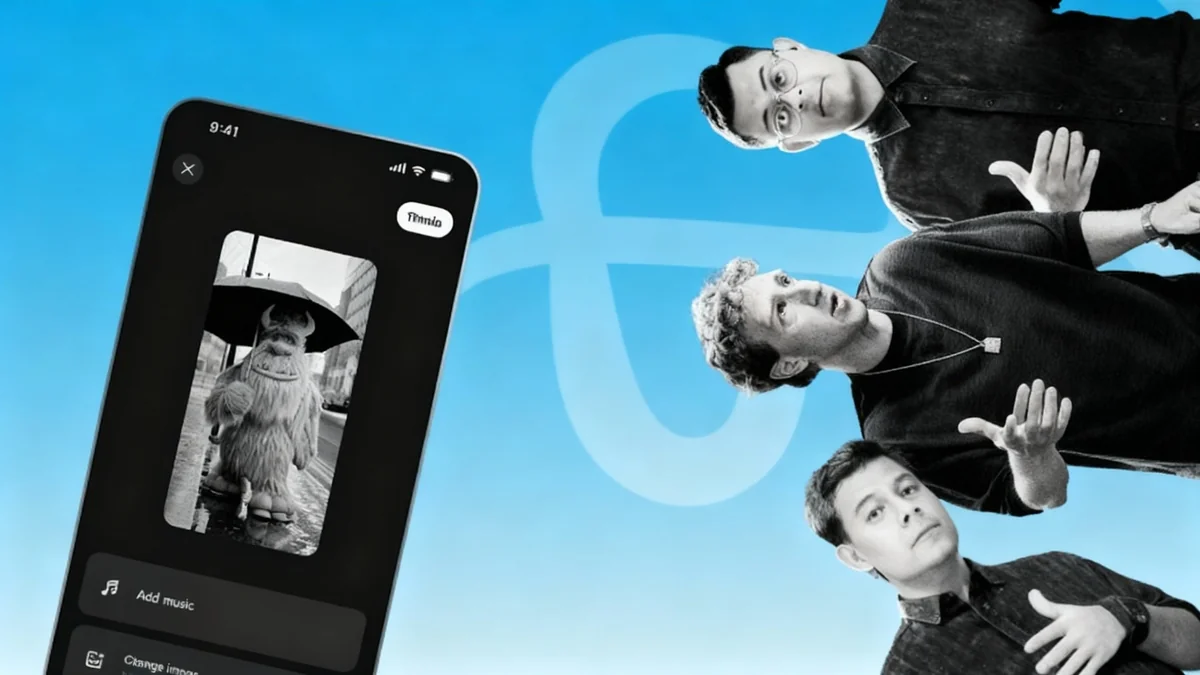Meta Platforms has appointed Vishal Shah, a longtime executive and former head of metaverse development, to a crucial leadership role within its artificial intelligence product team. This move signals a strategic pivot for the company as it intensifies its focus on AI development amidst a competitive landscape and recent internal restructuring.
Key Takeaways
- Vishal Shah, former head of Meta's metaverse efforts, now leads AI product management.
- The appointment is part of Meta's push to become an "AI company," not just an "AI team."
- Shah will integrate AI across Meta's apps and its Reality Labs division.
- This leadership change follows recent layoffs and a rapid AI hiring spree.
- Meta aims to develop AI models smarter than humans and personalized for users.
Strategic Shift Towards AI Dominance
Mark Zuckerberg’s latest executive reshuffle places a seasoned Meta veteran at the forefront of its AI ambitions. Vishal Shah, who joined Meta a decade ago, previously led product at Instagram before taking charge of the company's metaverse initiatives in 2021. His new role is Head of AI Product Management, reporting directly to Nat Friedman, Meta's Head of AI Product.
This appointment underscores Meta's urgent drive to accelerate its AI development. The company is actively competing with industry leaders like OpenAI and Google. Internal memos highlight a clear directive: to transform Meta into an "AI company."
Background on Meta's AI Push
Meta has made significant investments in AI talent over recent months. Despite this, the company faced challenges with its AI video service, Vibes, which launched quickly but was soon overshadowed by OpenAI's Sora app. This rapid pace and competitive pressure are driving many of Meta's current strategic decisions.
Shah's Mandate: Integration and Collaboration
In his new capacity, Shah will play a critical role in integrating AI technologies across Meta's vast ecosystem. This includes flagship AI products like the Meta AI app, as well as enabling individual app divisions, such as Instagram and WhatsApp, to leverage Meta's foundational AI models for unique user experiences.
"Vishal will be critical in standing up this collaboration model, leading the overall integration strategy, and ensuring scaled success," Nat Friedman stated in an internal memo.
His deep understanding of Meta's product landscape and established relationships within the company are seen as key assets for this complex integration task. Shah's appointment also comes at a time of significant organizational change within Meta, a company valued at approximately $1.9 trillion.
Recent Workforce Adjustments
- Last week, Meta laid off around 600 staff from its AI team.
- These cuts followed a period of aggressive AI talent acquisition.
- The company framed these layoffs as necessary to streamline decision-making and accelerate product deployment.
The Metaverse Legacy and Future AI Integration
Shah's background in leading Reality Labs, Meta's augmented and virtual reality division, is particularly relevant. He will be instrumental in bridging Meta's Superintelligence Labs with Reality Labs, aiming to integrate AI technology into future AR/VR devices, including smart glasses. Mark Zuckerberg has previously emphasized smart glasses as vital to his vision of "superintelligence."
The company's costly push into the metaverse, which included renaming Facebook to Meta in 2021, faced technical hurdles and limited consumer adoption of its Quest VR headsets. This past experience appears to have informed the current strategic shift towards AI as a primary focus.
Connecting AI with Reality Labs
In an internal post, Shah expressed his commitment to fostering collaboration between Meta’s core AI research and its AR/VR hardware development. This synergy is expected to shape how personalized superintelligence is delivered to users across various devices.
- Reality Labs oversees metaverse development and smart glasses.
- Shah aims to build bridges between AI research and AR/VR.
- The goal is to deliver "personal superintelligence" across all devices.
Gabriel Aul, currently head of the social metaverse app Meta Horizon, will now lead the metaverse team, succeeding Shah in that role.
Addressing Internal Dynamics and Market Competition
The appointment of an internal veteran like Shah also addresses some internal frustrations reported within the company, particularly concerning the leadership of Nat Friedman, who joined Meta in June. Friedman, a prominent Silicon Valley investor and former GitHub head, oversaw the recent launch of Vibes.
Vibes, an AI-generated short-form video feed, was reportedly rushed to market to preempt OpenAI's Sora. To expedite its launch, Meta secured a multiyear, multibillion-dollar deal to use Midjourney's AI image generation technology. Friedman is a long-standing advisor to Midjourney.
While Vibes did see an increase in Meta AI's active user numbers and downloads, the excitement surrounding Sora, released days later, quickly overshadowed it. A Meta spokesperson affirmed Friedman's leadership, stating, "Nat has had a fast and impressive start, which is only validated by his ability to bring some of the best people in the company into his teams."
Zuckerberg has historically favored appointing long-standing allies to senior positions. However, a notable shift occurred last summer when external leaders were brought in to revitalize struggling AI efforts after the April launch of Llama 4. This included Alexandr Wang of Scale AI to head Meta Superintelligence Labs and its elite 'TBD' lab, with Friedman joining under Wang to lead the AI product team.
Friedman has been a key advisor to Zuckerberg, attending board meetings as an external AI consultant before joining the company. As part of his recruitment, Meta acquired 49 percent of Friedman's venture fund, providing a significant financial gain for the entrepreneur. Shah's appointment reinforces Meta's commitment to leveraging established talent to navigate the complex and rapidly evolving AI landscape.





